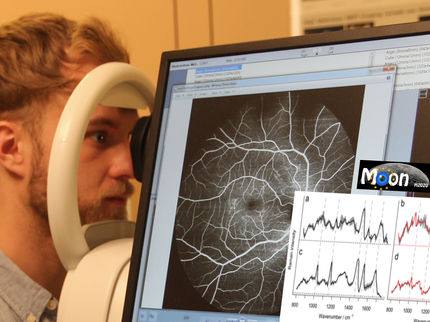Right under your nose: A more convenient way to diagnose Alzheimer's disease
Certain proteins in nasal discharge can indicate the onset and progression of Alzheimer's, providing an avenue for early detection
The Republic of Korea, like other countries with a rapidly ageing population, is facing increasing numbers of patients with dementia, of which Alzheimer's disease (AD) is the most representative type. Unfortunately, AD has no complete cure yet; but, some treatments have been proven to delay its progression. Of course, this means that timely diagnosis while the symptoms are still mild is essential to maximize a patient's quality of life.

Symbolic image
Engin_Akyurt, pixabay.com
However, currently available technologies for diagnosing AD are limited because they involve expensive machinery and invasive or inconvenient procedures. Now, in a recent study published in Scientific Reports, scientists from Daegu Gyeongbuk Institute of Science and Technology, Korea, hint at a novel way of diagnosing AD in a much simpler way --collecting and analyzing specific proteins in nasal discharge samples.
Professor Cheil Moon, who led the study, explains how they came up with the idea: "In 2017, we found that olfactory dysfunction occurred in the early stages of AD in mice and suggested that the cause of the symptoms was induced by soluble species of amyloid-β (Aβ) oligomer accumulations in the peripheral olfactory system. We hypothesized that soluble Aβ oligomers could be detectable in nasal discharge and that they may be a useful parameter to monitor disease progression." To test their hypothesis, they gathered and compared nasal discharge samples from 39 patients with AD and 21 people from an age-matched control group.
They found that the levels of two particular Aβ oligomers (the aggregated forms of Aβ implicated as characteristic of Alzheimer's) were consistently higher in patients from the AD group. What's more, the levels of the "soluble" form of this protein could be used to not only separate healthy subjects from patients with AD, but also predict the onset and progression of AD over a three-year period.
Although further research will be required to better understand the link between Aβ oligomers in nasal discharge and the cognitive impairments related to AD, the results are certainly promising. Prof Moon remarks, "Routine nasal discharge screenings would be a better option to screen for AD because of its various advantages, such as its relatively low cost and non-invasive nature. The results of our study introduce a novel and simple approach to assess AD progression."
This new diagnostic technique will hopefully help in simpler and faster detection of Alzheimer's and improving the disease outcome, thus bringing much needed relief to millions suffering from the Alzheimer's worldwide.
Original publication
Seung-Jun Yoo, Gowoon Son, Jisub Bae, So Yeun Kim, Yong Kyoung Yoo, Dongsung Park, Seung Yeop Baek, Keun-A Chang, Yoo-Hun Suh, Yeong-Bae Lee, Kyo Seon Hwang, Young Soo Kim, CheilMoon; "Longitudinal profiling of oligomeric Aβ in human nasal discharge reflecting cognitive decline in probable Alzheimer’s disease"; Scientific Reports; online Published on July 8th, 2020.
Original publication
Seung-Jun Yoo, Gowoon Son, Jisub Bae, So Yeun Kim, Yong Kyoung Yoo, Dongsung Park, Seung Yeop Baek, Keun-A Chang, Yoo-Hun Suh, Yeong-Bae Lee, Kyo Seon Hwang, Young Soo Kim, CheilMoon; "Longitudinal profiling of oligomeric Aβ in human nasal discharge reflecting cognitive decline in probable Alzheimer’s disease"; Scientific Reports; online Published on July 8th, 2020.
Organizations
Other news from the department science

Get the analytics and lab tech industry in your inbox
By submitting this form you agree that LUMITOS AG will send you the newsletter(s) selected above by email. Your data will not be passed on to third parties. Your data will be stored and processed in accordance with our data protection regulations. LUMITOS may contact you by email for the purpose of advertising or market and opinion surveys. You can revoke your consent at any time without giving reasons to LUMITOS AG, Ernst-Augustin-Str. 2, 12489 Berlin, Germany or by e-mail at revoke@lumitos.com with effect for the future. In addition, each email contains a link to unsubscribe from the corresponding newsletter.























































